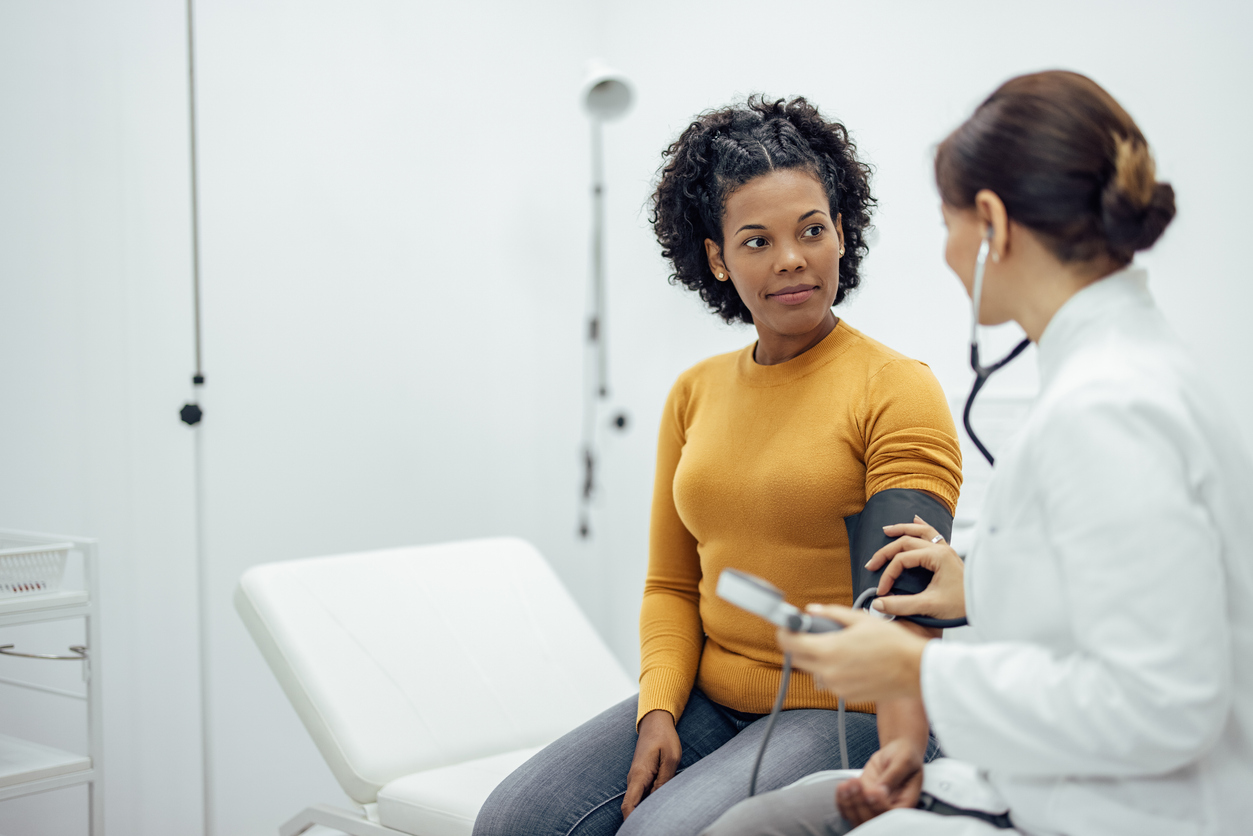News
Two years after the overturn of Roe v. Wade, inequities in women’s health intensify for the most vulnerable

by David Slipher
The impacts of overturning Roe v. Wade on U.S. reproductive rights and health policy cannot be overstated. During this crucial virtual session, VCU's own Wendy Klein, MD, MACP, breaks down the dire consequences and challenges stemming from this pivotal Supreme Court ruling. Moderated by Wilder School Professor Sarah Jane Brubaker, this discussion is essential to understanding the fallout after national reproductive autonomy legal protections were eliminated.
“The bottom line is that we have robust data that shows that restrictive abortion policies will increase the number of children born into and living in poverty, increase the number of families experiencing serious financial instability, increase racial inequities, and put significant, additional pressure on our under-resourced social welfare systems.”
- Dr. Wendy Klein
VIDEO: Watch the complete presentation
Dr. Klein’s presentation explored common misconceptions and myths using data-driven statistics. She shared that: one in four women will have an abortion during their life, nearly half of U.S. pregnancies are unplanned, almost 50 percent of women seeking abortion report using some form of contraceptive that failed and nearly half of women seeking abortion live below the federal poverty level.
As I prepared for this talk, I learned a lot myself,” Klein said. “There is so much material that is now being written and studied in all arenas and I encourage people to read more and learn more. Publications are coming out every day now to try to assess the impact and health consequences on our nation.”
Klein outlined a spectrum of concerns including worsened health outcomes, increased rates of infant and maternal mortality and morbidity, healthcare workforce issues in abortion ban states, barriers to medical training, threats to emergency medical care and in vitro fertilization, and an overall amplification of health inequities.
An exacerbation of negative healthcare outcomes, especially for historically marginalized and economically disadvantaged populations is a key outcome, according to Klein. She shared that the United States now ranks worst in maternal mortality among the 39 wealthiest industrialized nations.
“Restricting access to abortion and contraception impacts poor and minority women the most,” Klein said. “Black pregnant people are almost three times more likely to die in pregnancy and it should come as no surprise that racial and ethnic disparities in reproductive health outcomes follow from baseline inequities and access to healthcare.”
Dr. Klein further elucidated a foreboding new reality of health disparities, citing evidence from the American Journal of Public Health that an inability to receive an abortion directly correlates to increased poverty and worsening of physical health outcomes.
“The bottom line is that we have robust data that shows that restrictive abortion policies will increase the number of children born into and living in poverty, increase the number of families experiencing serious financial instability, increase racial inequities, and put significant, additional pressure on our under-resourced social welfare systems.”
About the speaker
Wendy Klein, M.D., is an internist who received her medical degree from Case Western Reserve University and has served on the faculty of the VCU School of Medicine for 25 years. During that time, she co-founded the VCU Women’s Health Center, the nationally designated VCU Institute for Women’s Health, WISDM (Women in Science, Dentistry & Medicine Organization), the SOM Committee on the Status of Women and Minorities, and the Women’s Health Internal Medicine Residency Program. She also founded The Health of Women multidisciplinary conference, a scientific update for healthcare professionals, held annually since 2000. She has served on numerous national initiatives and committees for the American College of Physicians, the Sex and Gender Women’s Health Collaborative, the North American Menopause Society and Planned Parenthood, where she played a key role in developing their primary care programs. She recently served as associate editor of Menopause Practice: A Clinician's Guide. Klein has been recognized in Richmond Magazine’s listing of the “Top Docs in Richmond” and The Best Doctors in America. In 2014, she was awarded Mastership by the American College of Physicians. She is medical director emeritus of Health Brigade, the oldest free clinic in Virginia, a safety net for those most marginalized and least served. From 2015-2023, she served as a gubernatorial appointee to the Virginia Board of Health. During the COVID pandemic, she served in an advisory capacity to the Virginia Department of Health COVID-19 response team on the Testing Advisory Council, the Virginia Vaccine Advisory Workgroup and the VDH Covid Vaccine Training Committee.
She is deputy editor of the Journal of Women’s Health and remains actively involved in promoting public health and in accelerating women’s health research. She is a passionate advocate for access to health care, for reproductive autonomy and for gender equity in every arena.
About the moderator
Sarah Jane Brubaker, Ph.D. (M.S.’92), created the Wilder School post-baccalaureate certificate in gender violence intervention in 2003 and directs the program. She has received federal and state grants to improve efforts to prevent sexual and domestic violence on college campuses and to provide programming to young women involved in the juvenile justice system and trauma-informed training to juvenile justice staff. Brubaker is chair of the iCubed core “Disrupting Criminalization in Education: A Trauma-Informed Approach.” She has served as vice president and chair of the anti-harassment committee of the Society for the Study of Social Problems and a member of the Association of Public Policy Analysis and Management. Her research interests include sexual and domestic violence, adolescents at risk, social justice and social policy, reproductive and sexual health and intersectionality.